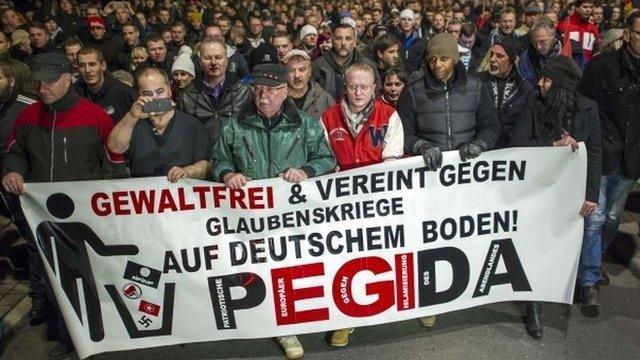Far right in UK 'weakest for 20 years'
- Published
- comments
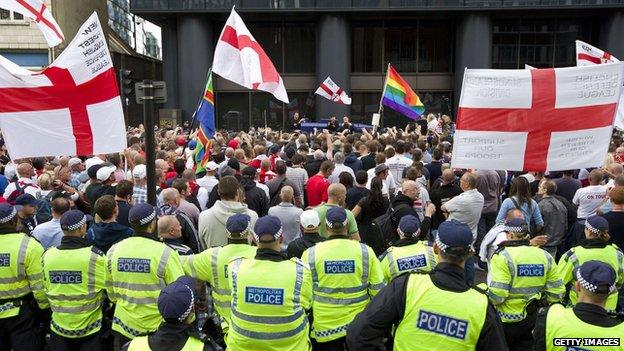
British far-right groups are at their weakest for 20 years, according to a report by anti-racism campaigners.
Hope Not Hate says the two main groups - the BNP and EDL - are splintered and directionless amid a loss of leadership.
The results mirror academic analysis which has found the far right split in the UK despite its growth elsewhere.
The report says online far-right activity appears to remain strong - but new groups have failed to translate this into action on British streets.
The annual survey by the anti-racism monitoring group says that 2014 saw a string of events that would have been previously used by far-right groups to seek recruits - including the Rotherham sexual grooming scandal, new terrorism threats and a rise in immigration.
But Hope Not Hate , externalsaid that no far-right group had shown itself capable of building significant new numbers of active supporters as the two main organisations have faltered.
The British National Party was electorally all but wiped out at the May 2014 elections, including party leader Nick Griffin losing his European Parliament seat. In October the party threw him out after 15 years in charge.
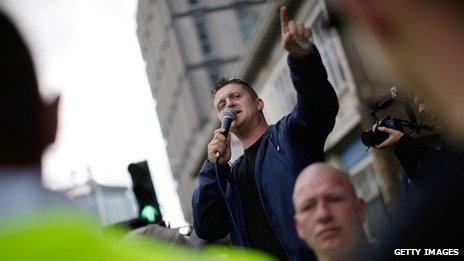
Tommy Robinson quit EDL amid fears of extremism
Meanwhile, the English Defence League, which once attracted thousands to its largest and most confrontational marches, has fragmented after its former leader Stephen Yaxley-Lennon, also known as Tommy Robinson, quit in October 2013.
Although a string of new groups have emerged in the wake of BNP and EDL in-fighting, Hope Not Hate said none had built significant momentum offline.
"One of the problems facing the British far right is over its own identity," says the report. "The British far right enters 2015 as a divided and weak movement but, while this is likely to remain the case over the next year, the conditions exist for this to change very quickly."
Germany has seen the rise of the "anti-Islamisation" Pegida movement, capable of mobilising thousands onto the streets, but there has been a fragmentation of far-right movements in the UK.
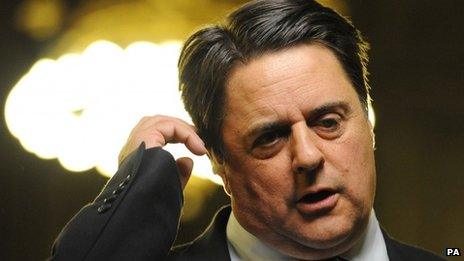
Former BNP leader Nick Griffin was ejected by his own party
Some former BNP voters have drifted to UKIP - although Nigel Farage's party has banned former members of extremist organisations from joining it.
Matthew Goodwin, associate professor of politics at the University of Nottingham and an expert on political extremism, said events in the UK have been moving differently to those in Europe.
"The rise of UKIP has created a dilemma for activists in the far-right," he said. "Do these far-right activists give up and go into political apathy, or do they go back to their confrontational roots?"
Hope Not Hate warned that individuals obsessed with right-wing ideology could still pose terror threats as "lone wolves".
Last year Ryan McGee, a serving soldier, was jailed for two years for making a nail bomb at his family home.
- Published26 May 2014

- Published9 January 2015
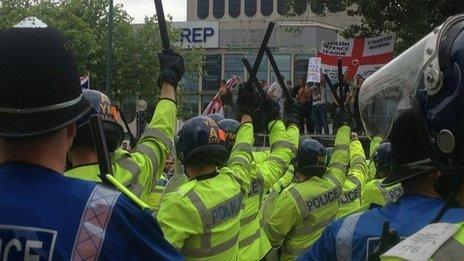
- Published28 November 2014
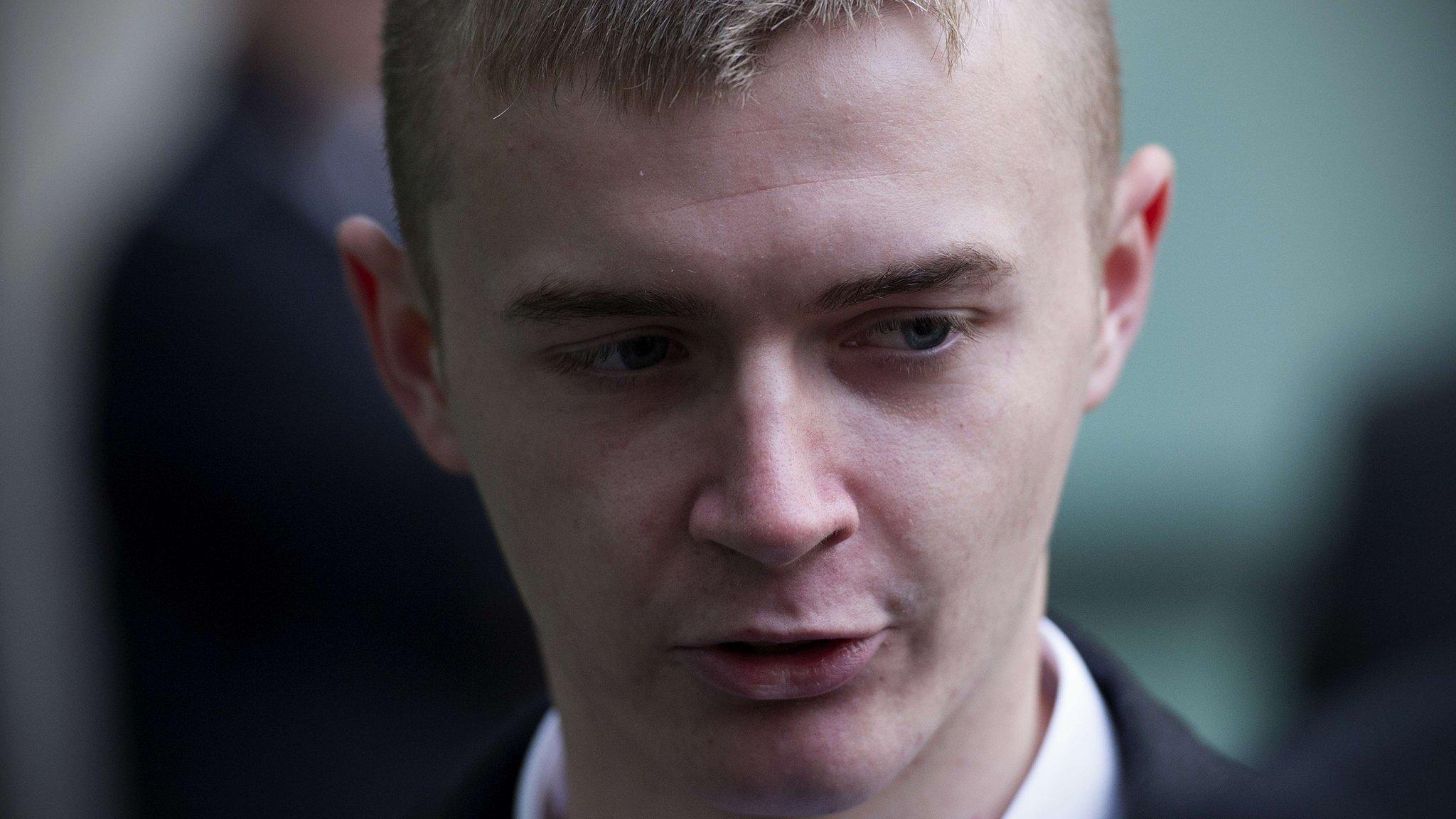
- Published13 January 2015
